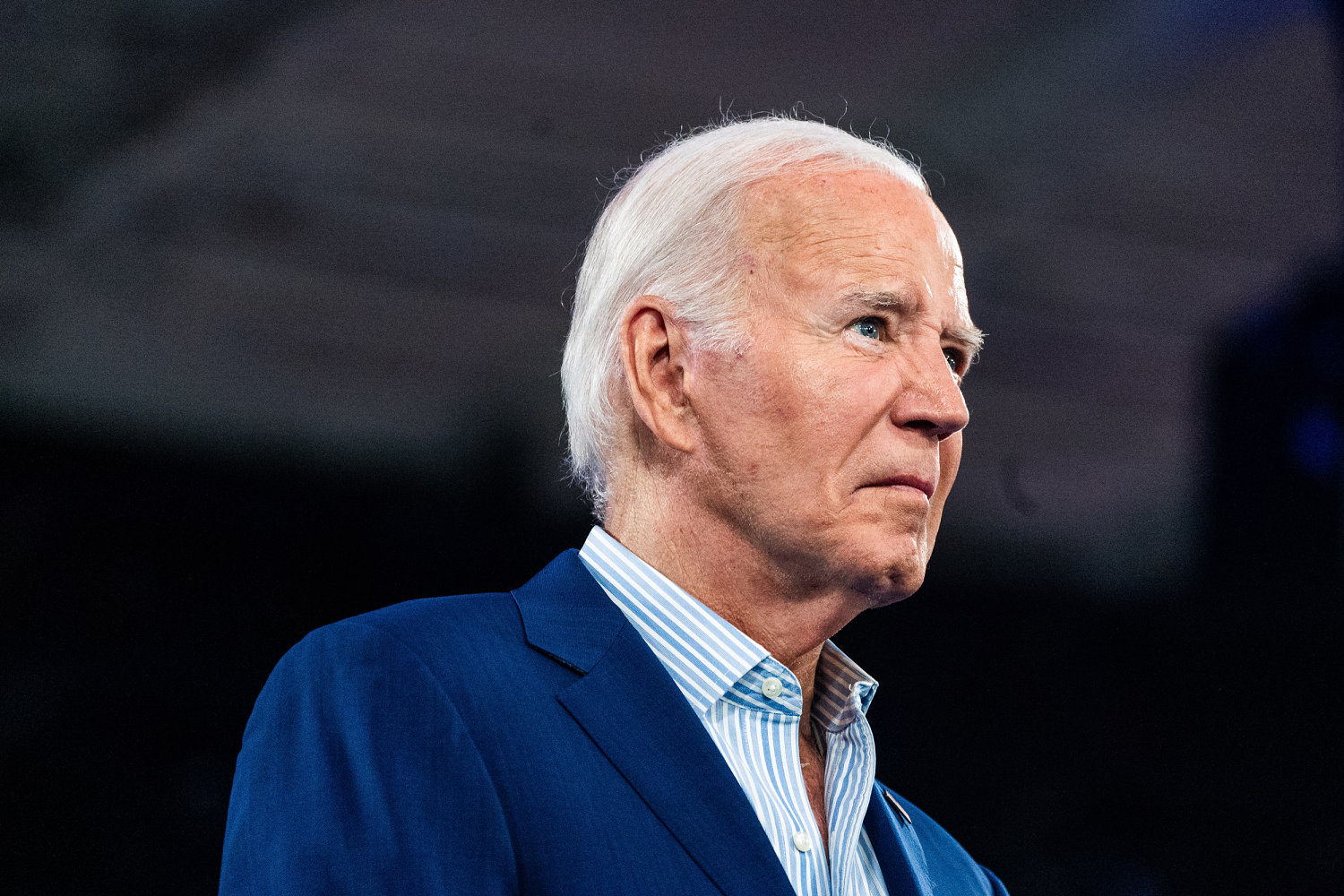
WASHINGTON — For more than three at-times excruciating weeks, President Joe Biden and his team were locked in a campaign to save his candidacy. With his prime-time address to the nation Wednesday night, a new effort is underway: to shape his legacy.
A team of Biden’s closest advisers is already at work to plot out what that will look like. The discussion includes domestic priorities he could advance in coming budget negotiations with Congress or through executive action, diplomatic initiatives he could see through with a freer hand and accomplishing what he has described as the most elusive of the three goals he outlined in his 2020 campaign — unifying the country.
NBC News spoke to a half-dozen White House and campaign officials about what Biden is planning, and advisers said they recognize that the biggest factor shaping how he is viewed in history will be whether Vice President Kamala Harris is successful in her bid to succeed him.
“Everything is being viewed through that lens,” a White House official said.
In the earliest stages of this new phase, Harris campaign and Biden administration officials describe a thus far seamless approach to advancing both of their goals at once. There has been no explicit directive to Biden aides to run major decisions by Harris’ team for approval — but they have been collaborating nonetheless to make sure to row in the same direction.
Some of that is by necessity more than design — Harris’ team on the campaign and in the White House had been a much smaller part of the larger operation. But it also reflects the experience of personnel on both sides — especially long-standing relationships between Sheila Nix, who was overseeing Harris’ campaign team, and top Biden advisers she once worked alongside when he was vice president during the Obama administration.
It builds on the approach taken shortly after Biden’s poor debate performance on June 27, when the White House publicized Biden and Harris’ having lunch and added her to an Independence Day event, as well as Biden’s oft-repeated remarks about how Harris was ready to be president.
Her team likewise took extra care not to make any moves that could be perceived as planning for her own potential candidacy, for fear it would be seen as disloyal, a senior adviser said.
Both camps understand there has been something of a honeymoon period that may not last. But it is nonetheless an important moment to execute successfully to try to develop momentum that can carry her forward.
It began with Harris’ offering a tribute to Biden on Monday, describing his record in a single term in office as rivaling or surpassing those of most two-term presidencies. Now, Biden’s Oval Office speech presents a critical opportunity to speak to the American people as they view him no longer as an embattled candidate but as a humbled, soon-to-be former president.
Part of his message Wednesday night will build on the Oval Office address he delivered just over a week ago — after the attempt to assassinate former President Donald Trump — about the need for the country to come together despite an often-bitter election campaign. For weeks, though, Biden has been most at odds with his own party.
After he announced nine years ago that he would not be a candidate in the 2016 election, Biden told the country that no one should commit to seek the presidency unless he or she could commit “110%” to the effort. In private, Biden acknowledged as he made the decision to leave the 2024 race that he could no longer fight a two-front war if he stayed in it — against his party and against Trump.
Biden officials described going through a range of emotions since they learned of his decision not to seek a second term. There was shock at the decision itself, which in retrospect seemed inevitable but for weeks they worked hard to avoid. There was anger, especially at Democratic leaders whom they viewed as betraying what they saw as Biden’s loyalty to the party by pressuring him to drop out. And there was sadness amid concern that — as Biden himself put it often — the 90-minute debate in June would perhaps overshadow a career of committed public service.
But the time for sentimentality is short, as a senior campaign official put it. And Biden’s speech offers, especially for his team in the White House, a rallying point for its remaining months in office.
White House chief of staff Jeff Zients, speaking to White House staff members this week, said that in every conversation he had with him, Biden directed him to continue pushing forward on priorities like working to lower costs, implementing major legislation like the infrastructure bill and the CHIPS Act and standing up for democracy.
A source close to Biden said he will also reprise another message he offered after he declined to run in 2016: that while he will not be a candidate, he is not going to stop engaging in the public debate.
In some ways, Biden’s political obituary was already written eight years ago as he prepared to depart the vice presidency. There were a rousing tribute at that year’s Democratic convention, a daylong event in the Senate, where he had also served for 36 years, and President Barack Obama’s awarding him the Presidential Medal of Freedom. The latter two events were tempered, though, by the shock of Trump’s victory over Hillary Clinton.
Wednesday’s speech will be just the first in a series of farewell messages Biden will have a chance to deliver, including next month at a Democratic National Convention being retooled to focus on Harris and her eventual running mate. He will also have the traditional presidential farewell address in the closing days of his term, when aides hope he will truly be preparing to pass the baton to a President-elect Harris.






